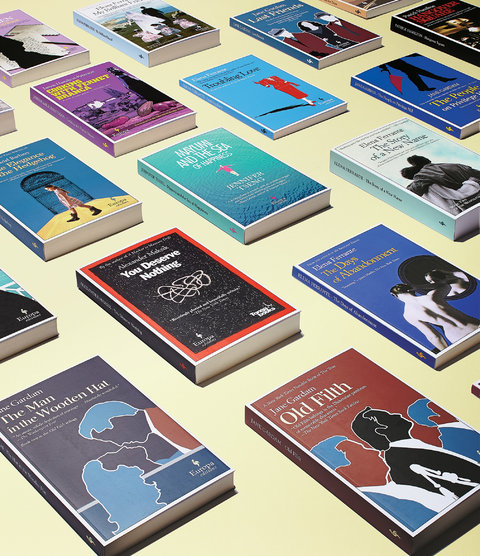
The New York Times T Magazine profiles Italian small press Europa Editions:
Even if you haven’t heard of Europa Editions, you’ve probably heard of some of its hits. There’s Muriel Barbery’s “The Elegance of the Hedgehog” (more than a million copies sold); Jane Gardam’s “Old Filth” (now in its 20th printing); and Alexander Maksik’s “You Deserve Nothing” (so far, the biggest title by an American). Like any good branded product, the books have an instantly recognizable visual stamp: stiff paper covers edged with white borders that frame color-drenched matte backgrounds. According to Europa’s Australian-born editor in chief, Michael Reynolds, “When you see them all together, they draw you in like a bowl of candy.”
That effect is completely deliberate. Europa books are the invention of the Italian husband-and-wife publishing team Sandro Ferri and Sandra Ozzola Ferri, founders of the independent Roman house Edizioni E/O, who have been bringing the likes of Christa Wolf and Ryszard Kapuscinski to Italian readers since 1979. Because their countrymen are notoriously unenthusiastic book readers, the Ferris designed alluring covers to tempt reluctant Italian eyes.
Interestingly, Motoko Rich already profiled Europa Edition in the Times in 2009, so I guess they must be doing something right…
Comments closed

